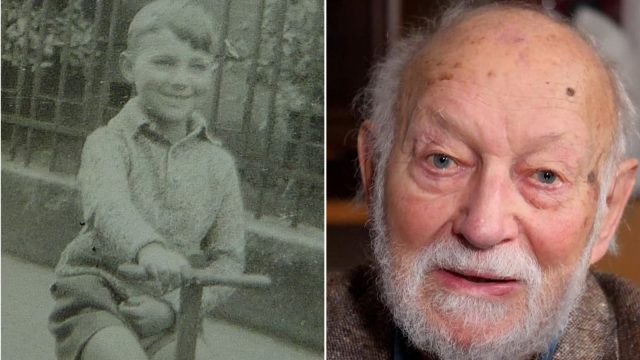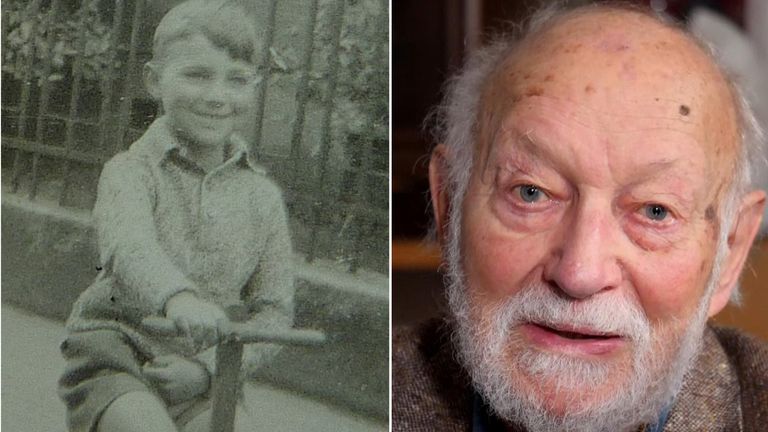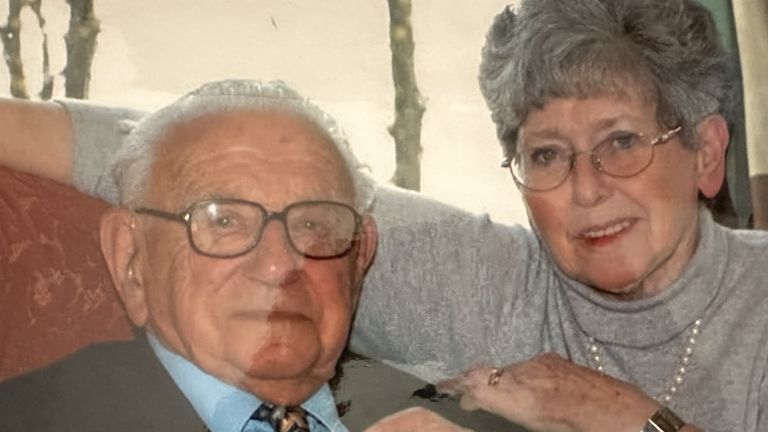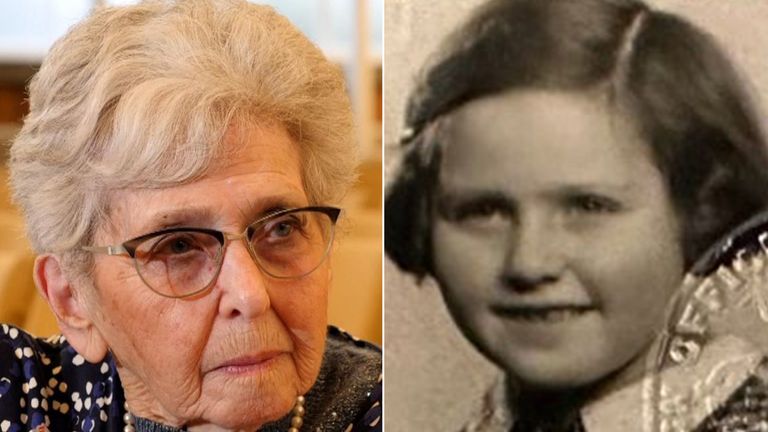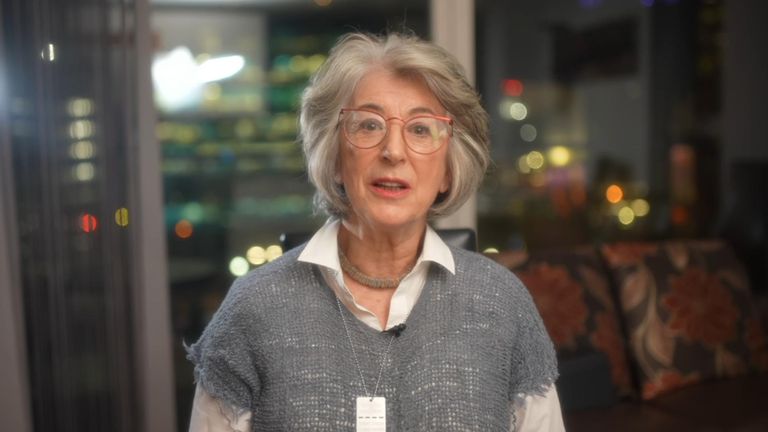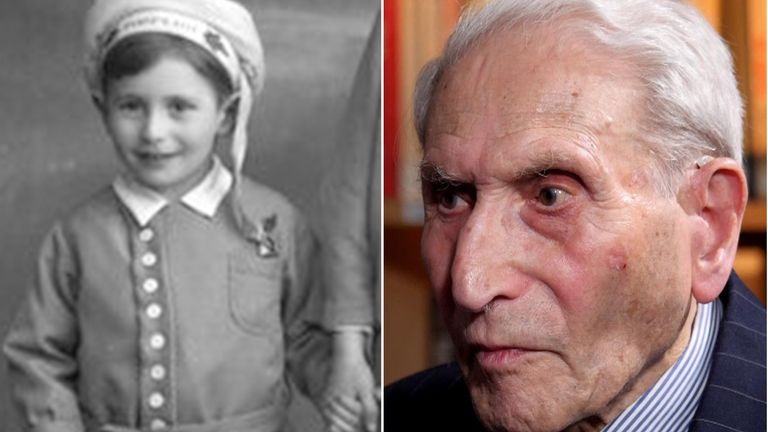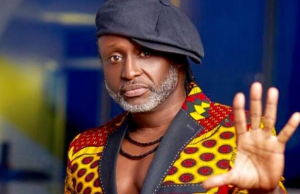Antisemitic incidents referencing the Holocaust have increased by 104% across the UK in 2023, new figures obtained by Sky News show.
The Community Security Trust (CST), a charity that protects British Jews from antisemitism, last year received 955 reports of Holocaust-related antisemitism, defined as incidents containing some kind of reference to the Holocaust, Nazis, Hitler or swastikas.
That number is more than double the 469 incidents reported in 2022.
Of these instances, more than half occurred after the 7 October attacks, when Hamas killed around 1,200 Israelis and abducted more than 200 others.
More than 26,000 people in Gaza have been killed in Israel’s retaliation, according to the health ministry in the Hamas-ruled strip, and more than 64,400 wounded.
The CST charity said incidents involving Holocaust denial also rose significantly in 2023 – increasing by 268% on the year before.
The figures were released as the UK marks Holocaust Memorial Day, commemorating 78 years since the Auschwitz-Birkenau concentration camp was liberated.
‘I can’t believe this is England’
Holocaust Memorial Day commemorates the victims of the Holocaust, and of more recent genocides in Cambodia, Rwanda, Bosnia, and Darfur.
Six million Jews were killed in the Holocaust at the hands of the Nazis.
People across the UK are being urged to light a candle in their memory, while London landmarks including the London Eye will be lit up in purple to mark the occasion.
Lady Milena Grenfell-Baines was one of hundreds of Jewish refugees rescued in 1939 by Sir Nicholas Winton, who rescued 669 children from Czechoslovakia, bringing them to the UK and sparing them from Nazi persecution.
More than 80 years later, Lady Milena, who now lives in Preston, thinks it’s vital that survivors like her are educating others.
She told Sky News: “I think a lot of it [antisemitism] is based on ignorance.
“Whilst we’re still here, we can prove it [the Holocaust] was really true.”
CST data shows UK incidents that glorified or called for another Holocaust increased by 130% last year, with the 96-year-old saying this rise was deeply concerning.
“To me, as a refugee, I can’t believe this is England – and one didn’t expect that sort of thing in England,” she said.
‘They marched through the streets, singing blood-curdling songs’
Another survivor who fled Nazi Germany is Albert Lester.
He was only 11 years old when in 1938 his school was raided by Nazis as part of Kristallnacht – “The Night of Broken Glass” – when Jewish homes, businesses and synagogues in Germany and Austria were attacked, and up to 30,000 Jewish men were taken to concentration camps.
Mr Lester told Sky News: “They marched through the street singing these blood-curdling songs – we were told we shouldn’t wear yarmulkes [Jewish skullcaps] because the children would throw stones at us.”
Kurt Marx was also living in Germany during Kristallnacht, and recalls the devastation he witnessed that night.
“My uncle’s shop was completely destroyed, and there was smoke coming out of my school because they had set the synagogue inside on fire,” he said.
The 98-year-old added: “There’s an undercurrent of antisemitism everywhere – it’s been there all along.”
Read more:
Who is the Holocaust survivor among ICJ judges in South Africa vs Israel case?
Minister dismisses world court after it says Israel must take measures to prevent genocide in Gaza
‘Shocking and offensive’
Dr Dave Rich, director of policy at the CST, said the recent rise in Holocaust-related antisemitism has become more regular since the 7 October attacks.
“Where there is antisemitism, it quite often comes with offensive and shocking references to the Holocaust,” he said.
“This is an unprecedented rise, and I think educating about the true horrors of the Holocaust is a really important part to try and reduce it.”

